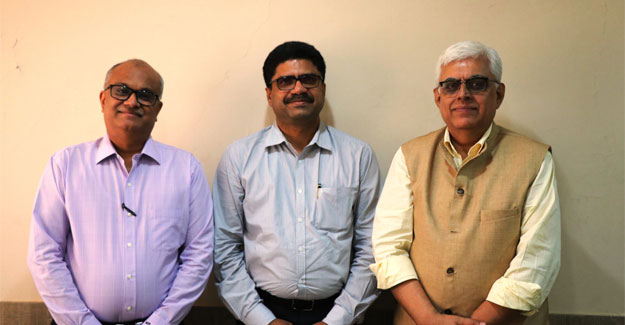
NCTC Proposes Measures To Boost T&C Industry
With the objective of highlighting the issues and challenges being faced by the textile and clothing industry as well as the urgent policy interventions required to address the same, all the stakeholders of textile and clothing Industry, viz., national textile associations, export promotion councils (EPCs) as well as regional level textile and clothing industry associations representing the entire textile value chain have formed a steering committee called the “National Committee on Textiles & Clothing (NCTC)” under the chairmanship of T Rajkumar, Chairman CITI. The NCTC comprises major textile associations and EPCs at regional and national level like TEXPROCIL, AEPC, PDEXCIL, SRTEPC, CITI, CMAI, ITTA, AFI, AMFII among others. The NCTC is now meeting regularly to discuss various sectoral issues to arrive at a common understanding on both short term and long term policy measures for domestic and international markets. For the purpose of long term policy measures, the NCTC has decided to hire the services of a competent agency to undertake a study and recommend various policy measures to enable industry to remain globally competitive and achieve a sustained growth rate. The NCTC has finalised a list of short term policy measures, and the NCTC delegation led by T Rajkumar, Chairman, CITI met Ministers of Finance, Commerce and Textiles respectively to apprise them of the grim situation facing the T&C sector. The textiles minister Smriti Irani assured the NCTC that all necessary action will be taken for the revival of the industry. The NCTC thanked the textiles minister for recommending to the ministries of finance and commerce, issues like extending 1-2 years moratorium or liquidity support for the financially stressed textile units; slotting recycled PSF under 5% GST rate; and the CCI cotton MSP operations to factor in international and domestic prices to protect the interests of farmers and cotton textile industry. The NCTC delegation also met the finance minister Nirmala Sitharaman on 14th October 2019 and submitted a joint memorandum apprising her about the urgent need to release the pending claims under RoSL/RoSCTL schemes; urging the banks to upload documents expeditiously for release of TUFS subsidy; extending the benefit of enhanced MEIS & RoSCTL till RoDTEP comes into force; reducing the margin money for working capital from 25% to 10% and the debt equity ratio norm from 1:1.33 for the entire textiles and clothing industry; extending 5% interest subvention for all textiles and clothing export products; and also all the benefits announced under special garment export package (SPELSGU) especially the 80JJAA income tax and enhanced EPF benefits extended for new jobs. The NCTC proposed a slew of short term policy measures to the commerce minister, Piyush Goyal at a meeting held on 15th October 2019 which covered issues broadly related to GST, the ease of doing business and RCEP negotiations. The measures suggested were imposing adequate protection/safeguards measures on the imports of fibres, yarns, fabrics, readymade garments and used cloths especially from China, Bangladesh and Indonesia; extending the benefits of enhanced MEIS & RoSTCL till RoDTEP comes into force; consider including anti-dumping duty in the duty drawback calculation and enhance the rates appropriately; restructure the obligation period under the EPCG scheme; extend the remission of duties and taxes under the proposed RoDTEP scheme for the entire textile value chain viz. all fibres, yarns, fabrics, made-ups, garments, and all types of technical textiles. It was also suggested that in India’s list under RCEP all textiles and clothing items must be kept in D Category for 20 years with certain sensitive items under exclusion list.
Textile Excellence
If you wish to Subscribe to Textile Excellence Print Edition, kindly fill in the below form and we shall get back to you with details.












